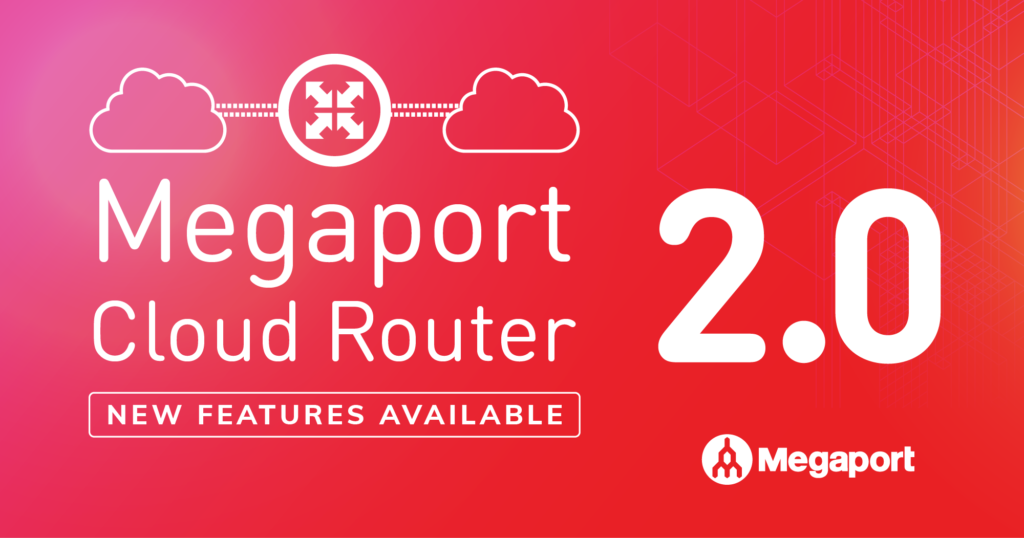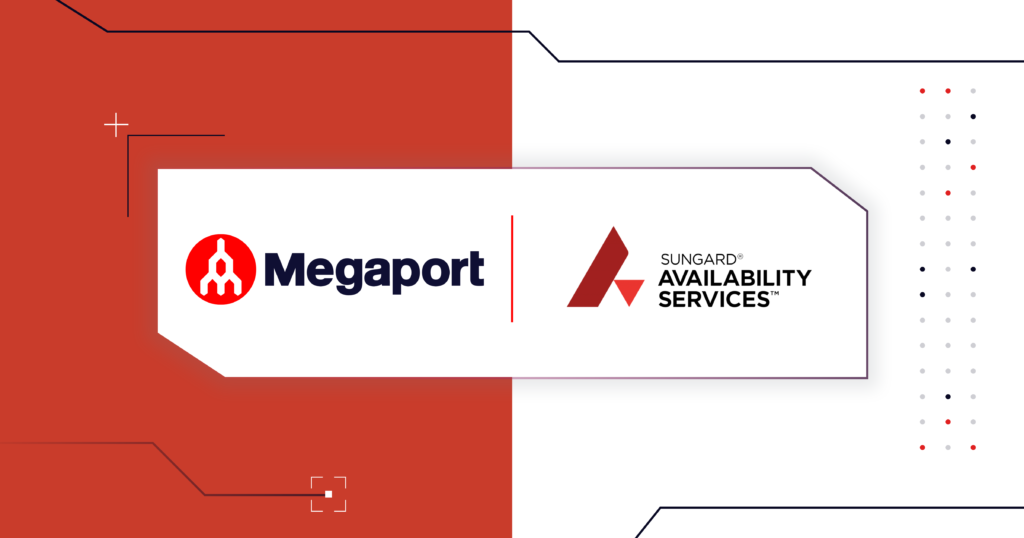
Megaport Cloud Router 2.0
Launching Megaport Cloud Router 2.0; evolving network virtualisation for powerful multicloud connectivity.
Network connectivity has evolved far beyond traditional means. Virtualisation has flipped the way we move data between on-premises, colocation, and cloud environments on its head. It’s led to the ‘software defined everything’ reality that businesses are becoming accustomed to; whereby computing infrastructure and networks are virtualised and delivered as a service. In fact, the global Software Defined Everything market is expected to grow at USD 143 billion by the end of year 2022 with 29.47% of CAGR. Organisations have wholeheartedly moved on from slow-to-provision fixed transport services, and using public internet connections, to software defined networking and Network as a Service capabilities. These capabilities make operations from the simplest of data migrations right through to complete digital transformations easier, faster, and more secure.
Virtual routing enabling powerful Layer 3 connectivity
Virtual routing was a concept born out of the virtualisation boom. It’s the capability of intelligently routing traffic to its destination from a virtual Point of Presence (PoP) without the need to own or manage a physical router. Virtual routing enables you to make routing decisions closer to the cloud without the burden of ordering, setting up, running, and maintaining hardware, or procuring an IP address or Autonomous System Number; this has transformed the way we operate Layer 3 connectivity and has opened up new possibilities for cloud networking. With a Virtual Point of Presence, you can connect to, and between clouds, from remote PoPs outside of cloud regions. A real-world scenario that shows the power of virtual routing is the ability to rapidly and easily connect public cloud services together to move workloads and enable application interoperation. Whether you’re born in the cloud, operate remotely outside your preferred cloud locations, or want to set up a cost-effective, easy hybrid or multicloud strategy, virtual routing is a valuable networking solution.
Removing the complexities of cloud networking
Buying, setting up, and managing your own private infrastructure for cloud networking is not only a major cost to your enterprise business, it also brings about serious complexities for IT and engineering teams. Getting to the cloud should be far more easy than building out hardware close to your chosen cloud providers and provisioning multiple cross connects to access the services you need. Relying on your colocation data centre being the hub of your network simply might not work for your business. The core of your network can now exist virtually without the need to implement and continually manage more hardware to achieve your desired cloud strategy. Our API integrations with the world’s leading cloud providers are built in to the MCR product so you can control your connectivity to these services without having to configure many individual connections – this leads to better multicloud performance and less hassle on your side. It’s as simple as spinning up an MCR in your Megaport account and building out your network using your MCR as you connectivity hub.
Megaport Cloud Router 2.0
Since the launch of Megaport Cloud Router (MCR) in January 2018, our partners and customers have provided valuable feedback on features to help them take full advantage of virtual routing. Several of these features are now available with MCR 2.0 and include:
- Four speed tiers capable of 1Gbps, 2.5Gbps, 5Gbps, or 10Gbps routing throughput;
- Bidirectional Forwarding Detection (BFD) for BGP that allows for fast link failure detection supporting fast failover of routed traffic;
- Border Gateway Protocol (BGP) Multi Exit Discriminator (MED) to support Virtual Cross Connect (VXC) prioritization that tells autonomous systems (AS) the preferred route to take for performance tuning;
- BGP shutdown toggle, so users can quickly turn BGP on or off; and
- Google API optimization to make it faster and easier to add MCR connections to the Google Cloud Platform and thus remove the need to click between Google and Megaport screens to establish a service.
Unlocking use cases for cloud connectivity
MCR 2.0 makes cloud connectivity easy, removing the complexities of building network architectures that enable enterprises to get ahead in this cloud-first era:
- Hybrid Cloud
- Provision an MCR in your chosen location and establish an inter-cloud gateway to make routing decisions remote from your physical Megaport. You can then pass traffic only destined for your Megaport back via your VXC to your data centre for private hybrid cloud use.
- Multicloud and Multi-Region
- Leverage our global Network to connect directly between multiple leading cloud providers, in multiple global regions, from Ecosystem of over 300 service providers. You can build an any-to-any secure environment for your public and private resources with routing decisions made from a single zone.
- Cloud to Cloud
- Provision an MCR to connect directly between multiple leading cloud providers. By leveraging our global Network, there is no need to bring multiple connections back to a central location or managed equipment. Google has a great tutorial on this: https://cloud.google.com/solutions/connecting-multi-cloud-vpcs-with-megaport And so does Oracle: https://blogs.oracle.com/cloud-infrastructure/interconnecting-clouds-with-oracle-cloud-infrastructure
- Global Expansion
- Build cost-effective, fast, and secure connectivity to expand your business to new markets outside of the regions you normally operate in by provisioning an MCR for on-demand, private connectivity from your data centre into your chosen locations. This rapidly extends your global reach without the need for physical infrastructure, and at a fraction of the cost.
Case study: Optimising data ingest and processing activities in the geodata industry
Fugro, a world-leading geodata specialist, operates their Roames platform which provides visualisation, reporting, and analysis capabilities through real-world 3D environments, and is powered by AWS Cloud. These models are developed by capturing images and data obtained from aircraft equipped with cameras and laser sensors, flying over customers’ infrastructure such as power lines, and then used by those companies to manage and maintain their assets.
In order to move data ingestion and processing operations in house (and out of a costly data centre in Sydney), and deliver workloads to its Roames platform quickly and efficiently, Fugro uses MCR for direct connectivity between their offices in Brisbane and AWS Cloud. Their MCR is set up in Sydney as a remote router and connects from a switch in their Brisbane office via a VXC. A VXC then connects from the MCR to AWS Cloud, linking their Brisbane office with the cloud at Layer 3.
This solution gives Fugro the ability to manage their data upload process within the proximity of their office and means they not only have increased operational convenience but also, their specialist team had the ability to easily negate any potential problems in a timely manner.
For more technical details on MCR 2.0, see Megaport Documentation. If you’d like to talk to us about adding MCR 2.0 into your cloud connectivity strategy, feel free to get in touch here.


